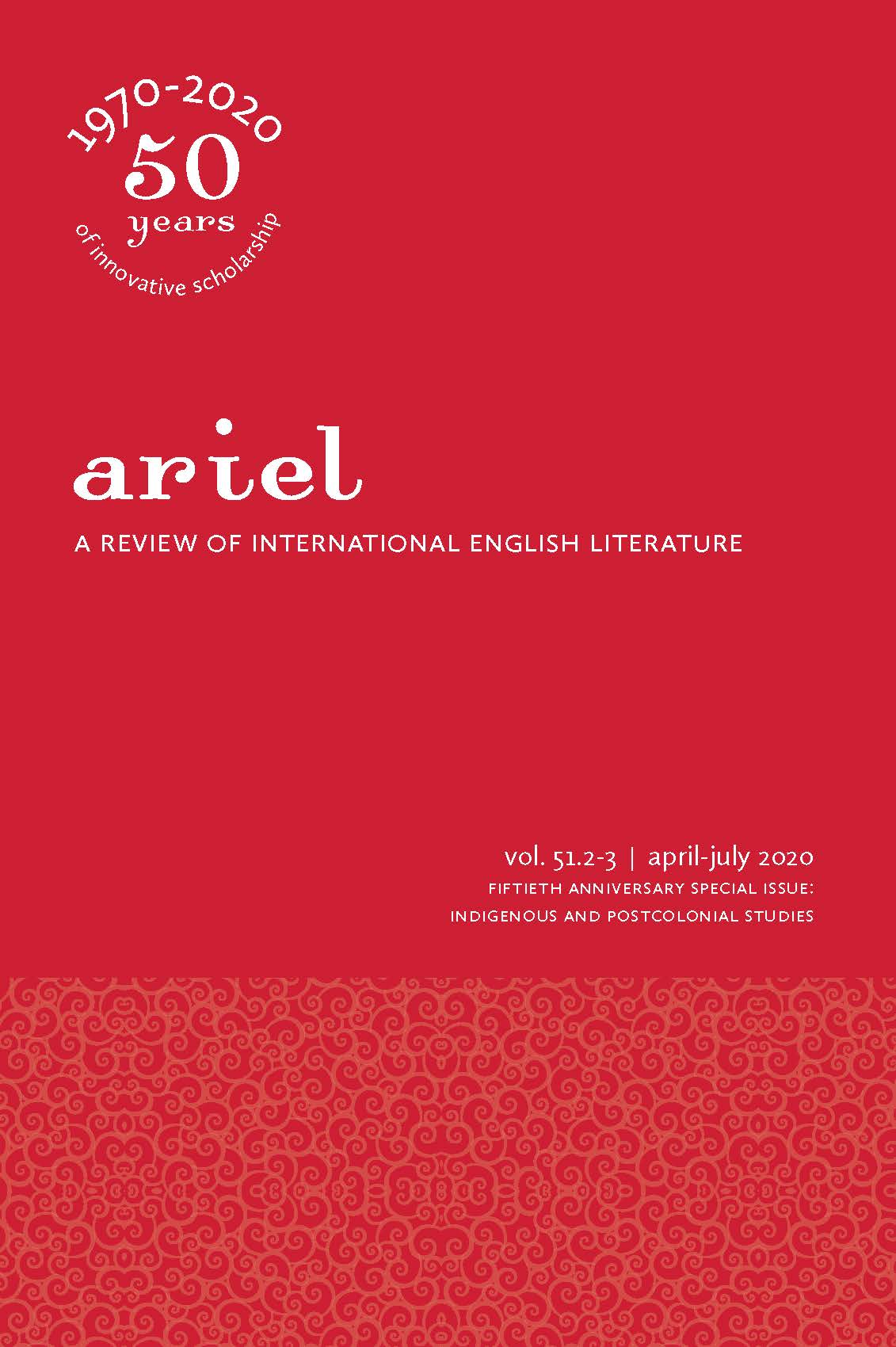Holding it Together: Indigeneity, (Settler-)Postcolonialism, and M. NourbeSe Philip
Keywords:
Black Canadian literature, Indigenous studies, settler colonialism, diaspora, comparative studiesAbstract
This paper revisits the terminological protocols in postcolonial and settler-colonial studies that rely on binaric constructions of colonial relations, such as colonizer and colonized, native and settler, and migrant and native. While developing new terms is important to the study of racialized settlerhood, which is irreducible to non-white settler experience, this paper considers the conditions—not categories—for relations between Indigenous and Diasporic subjects, primarily explored as Indigenous and Black subject relations. This shift in focus not only uncovers the lived experiences of the different(ly) colonized subject positions in (settler)colonial spaces but also centres the decolonial politics within cross-racial kinships. Woven through Jodi Byrd’s and Marie Battiste’s critiques of postcolonial and settler-colonial theories, M. NourbeSe Philip’s essays and her verse-novella Looking for Mr. Livingstone, and a personal anecdote about South Asian diasporic settler relations to caretakers of Stl’atl’imx land in BC, this analysis explores the “hold” as a spatial and epistemological condition for relations between Indigenous and Diasporic subjects. From its originary context in the Middle Passage, the “hold” is inscribed differently in the Africa of the verse-novella and at Ulluilsc, but ultimately takes shape as a sovereign Indigenous space and practice of kinship. The paper’s transnational and comparative study uncovers the entangled network of global Indigeneities and global Diasporas.


